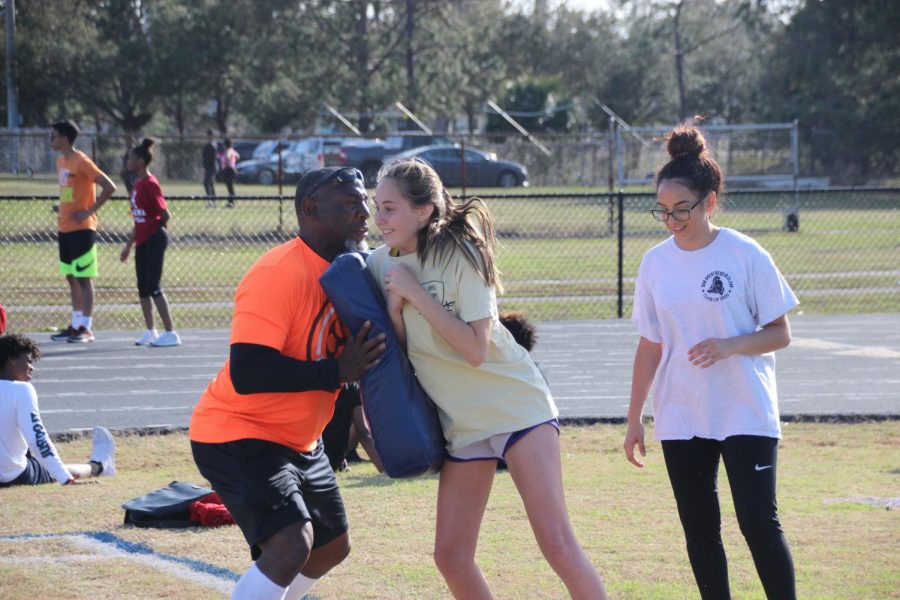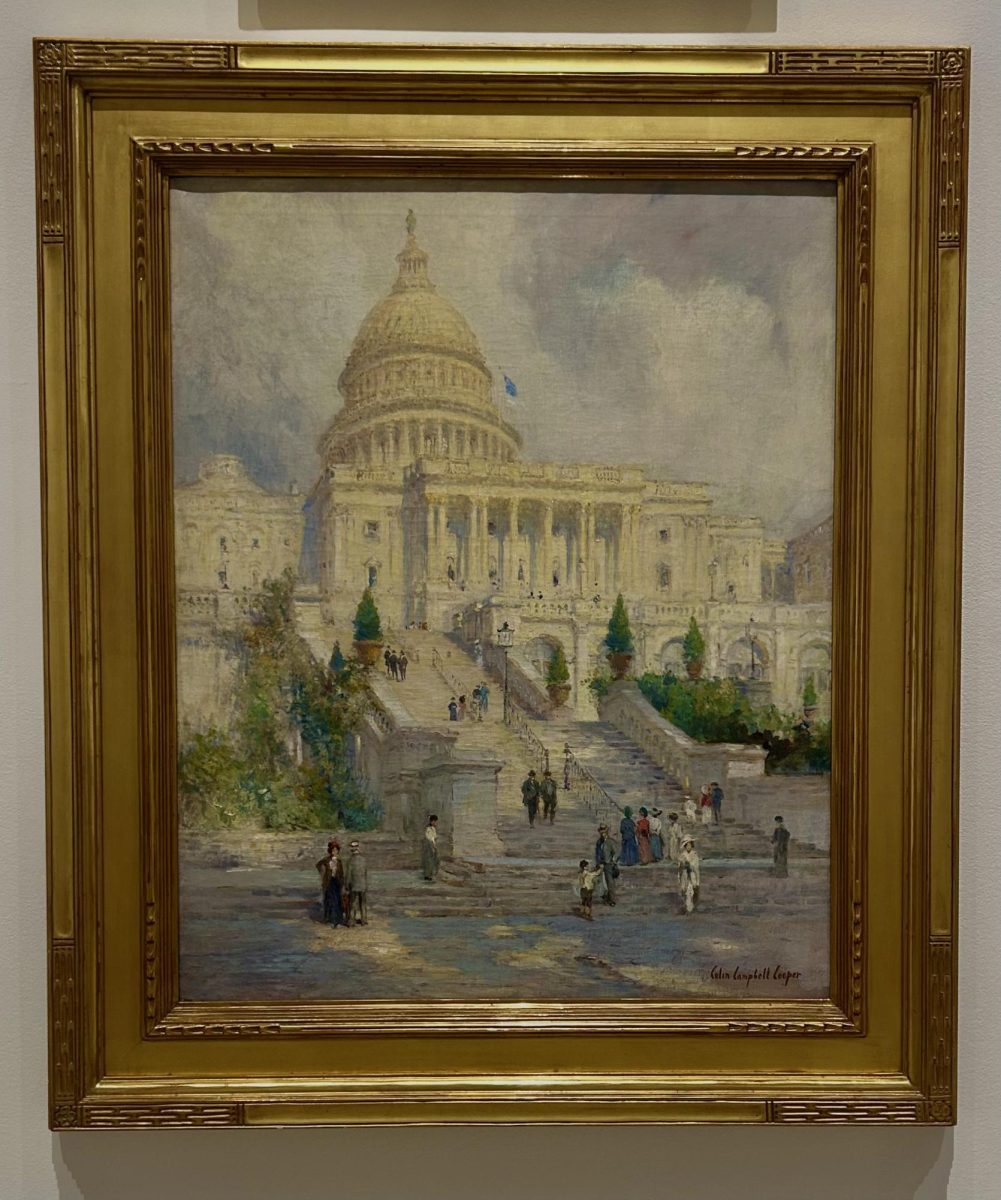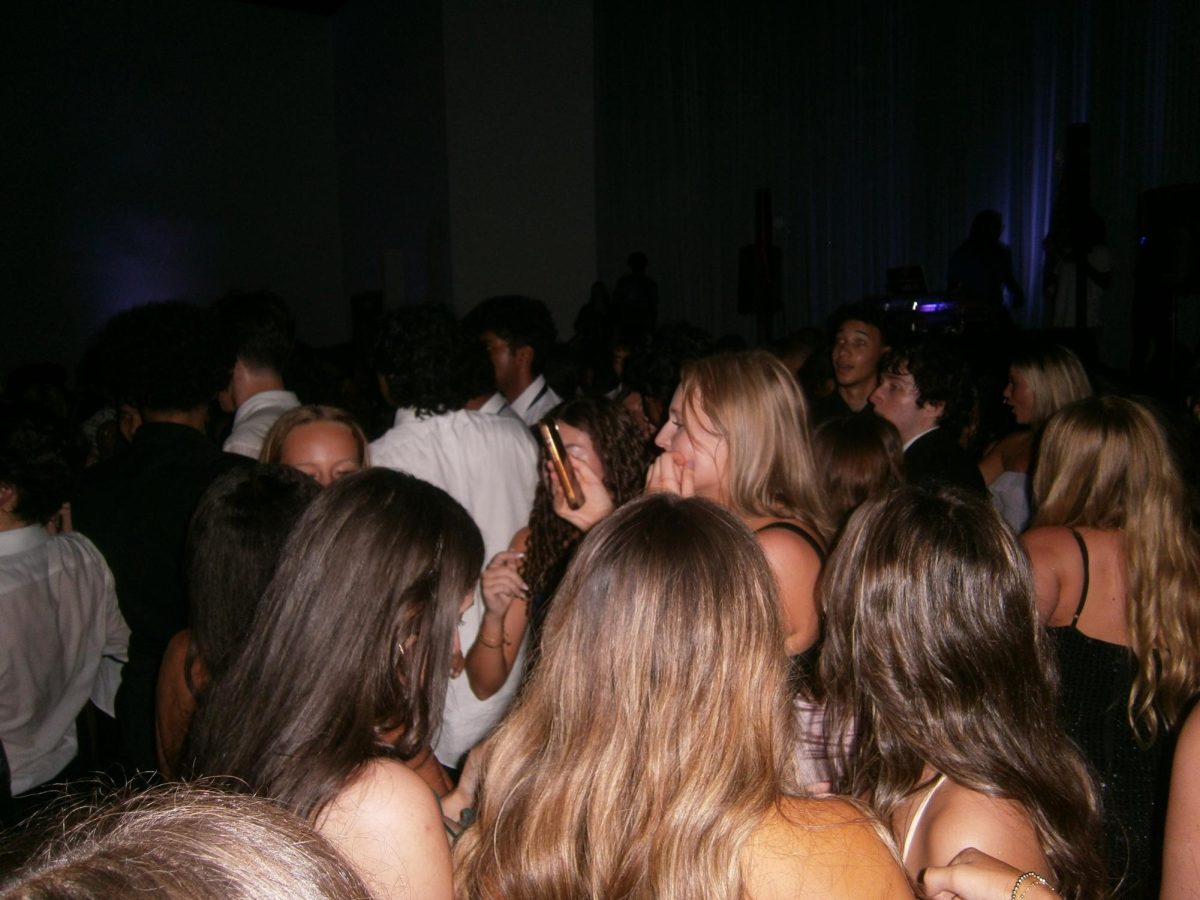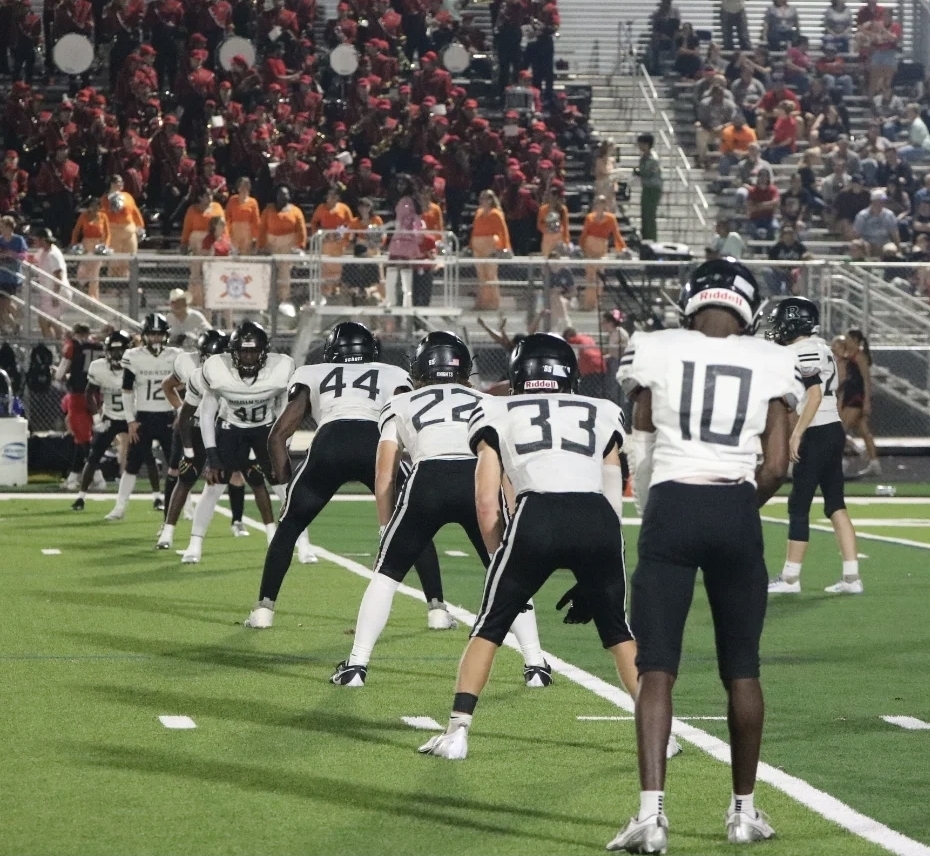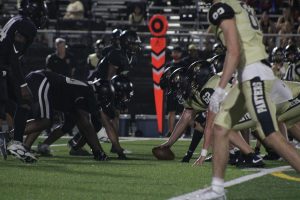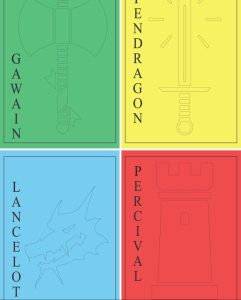A practice with Earnest Byner
Photo A. Meyer
Sadie Jacobson (’21) runs into Earnest Byner during a drill at flag football conditioning.
February 1, 2018
With one minute left in the AFC championship game in 1987, Cleveland Brown’s runningback, Earnest Byner, fumbled the ball– one yard away from tying the game. The Denver Broncos went on to win 38-33.
Byner’s mistake came to be known as “the fumble” and is one of the most infamous plays in NFL history. That one play even has its own Wikipedia page.
But now, 31 years later, Byner enlightens others about his game-costing error, encouraging young athletes around the country. On Wednesday, Jan. 31, Byner came to Robinson, where he led the flag football team in conditioning before sharing his stories with multiple teams.
“I fumbled, but that’s only part of my story,” Byner said. “Everybody fumbles.”
In 2014, Byner released his first book, Everybody Fumbles, that explains how such a grave error in a massive sports town shaped his life.
Although most players weren’t familiar with Byner, many coaches and administrators swarmed the practice field to catch Byner’s talk.
“Earnest Byner was one of the key players [for the Cleveland Browns], so I grew up watching him,” Cleveland Browns fanatic and Student Affairs Assistant Principal Christopher Pettit said. “He’s a great role model and someone our youth can look up to.”
Byner founded the Healing Dawgs, a non profit organization that assists with the continual healing of body, mind and spirit. For years, he has been working with veterans and younger kids.
“The foundation for all that I do is to spread love for each individual because we’re all people and we all need to be loved,” Byner said. “I hope to give [the Robinson players] a solid foundation.”
After Byner spoke to the teams, he passed around his two bigger-than-life super bowl rings. He then explained that those wins were only two moments, just like how the fumble was only a moment.
Although the internet may know him as the man behind “the fumble,” Byner knows that the future generations could benefit from hearing about his recovery, not the tragedy.
“I don’t want anyone to go through what I went through,” Byner said. “It was awful. But it helped complete my story.”

